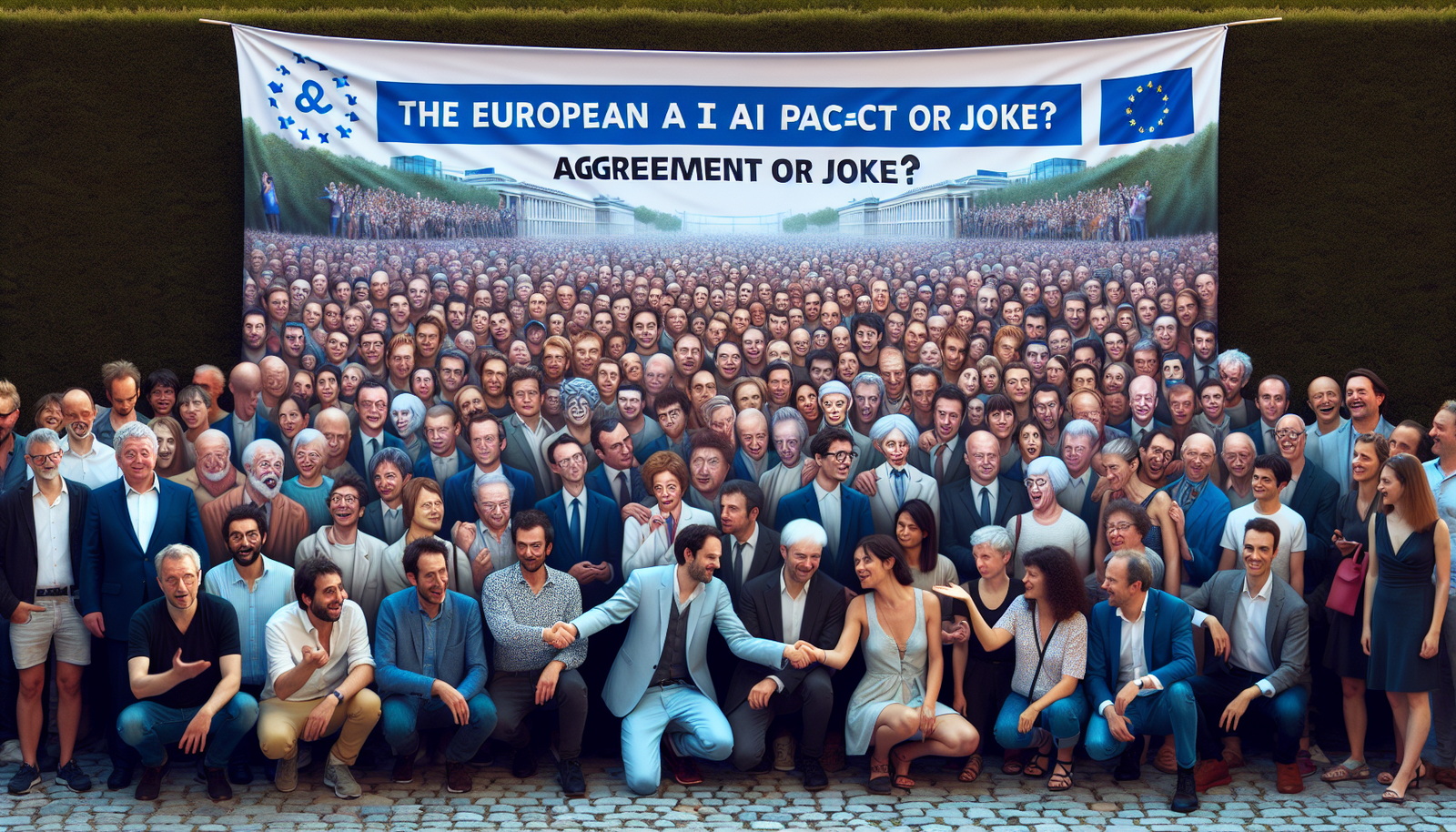The European AI Pact already raises serious questions about its actual scope. More than a hundred companies, including some of the most influential like Google and Microsoft, have signed this agreement. _Is this a sincere commitment_ or simply an opportunistic response to increasing regulatory pressures? This pact, which aims to establish a reinforced governance of AI, is intended to respond to major ethical and societal issues. _Preparing for the future legislation to take effect_ thus becomes a priority for these entities. Let’s explore the real implications of this initiative for innovation and society.
The European AI Pact: Multiple Signatures but Real Commitments?
Over a hundred companies have recently formalized their adherence to the European Artificial Intelligence Pact. Among the signatories are major players such as Google and Microsoft. This context illustrates the growing importance placed on the regulation of AI within the European Union. Swiss companies, such as Dassault Systèmes, are also joining this movement, reflecting a collective willingness to influence the ongoing legislation.
The Obligations of Signatories
The companies that have subscribed to the pact commit to taking specific actions to frame the use of AI. These commitments translate into the establishment of a dedicated governance strategy and the creation of a mapping of the impacts of AI on society. Signatories must also adhere to the guiding principles of the AI legislation, even before it officially comes into force. These steps aim to ensure an ethical and responsible adoption of these innovative technologies.
The Objectives of the Pact
The pact aims to promote the use of AI that is both transparent and regulated in Europe. While supporting industry efforts, this agreement intends to anticipate the challenges posed by new regulations, such as the AI Act, which could significantly transform the European technological landscape. The anticipated legislation should establish standards of quality and safety while ensuring the protection of user rights.
The Reactions to the Pact
Reactions to the establishment of this pact vary. Some experts fear it is merely a publicity stunt, with no real application. Others argue for its necessity due to the ethical and societal stakes of artificial intelligence technologies. The scepticism regarding the true impact of the pact is being voiced, especially in the context of a complex and constantly evolving regulation.
Perspectives for the Future
The European Commission recently published a guidance note on competition in the field of generative AI. This document highlights the EU’s desire to position itself as a leader in technological standards while maintaining public trust. The signatories of the pact must demonstrate that their commitment is not just a mere formality, but a genuine lever to create a trustworthy ecosystem around AI.
The Role of Companies
Large companies have the power to shape the future development of artificial intelligence in Europe. This initiative provides an opportunity to enhance transparency and accountability, two central values advocated by the EU. It is imperative that these companies take on their role as leaders in integrating ethics at the heart of their practices. Citizens, for their part, remain attentive to the concrete results of these commitments.
Conclusion on the Subject of Misinformation
Concerns around misinformation fuel the debate on AI regulation. A recent survey revealed that social media owners top the list of worries regarding the impacts of AI. The signatory companies must be vigilant and proactive to prevent potential abuses associated with their technologies. Effective measures are essential to establish a culture of responsibility and digital democracy.
To delve deeper into the subject, resources on the impact of AI on employment and wages and on concerns related to misinformation are available.
Frequently Asked Questions about the European AI Pact
What is the European Artificial Intelligence Pact?
The European AI Pact is an agreement signed by more than a hundred companies, aiming to establish high standards of governance and ethics in the development and use of artificial intelligence in Europe.
Which companies have signed the European AI Pact?
Among the signatory companies are tech giants such as Google, Microsoft, and Dassault Systèmes, as well as Swiss companies, demonstrating a wide range of commitments to support AI regulation.
What are the commitments of the signatory companies of the pact?
The signatory companies commit to adopting at least three main actions: developing a governance strategy for AI, mapping AI applications based on their risk, and actively participating in the implementation of the principles of the future European AI legislation.
Why is the European AI Pact important?
This pact is crucial as it encourages the proactive application of ethical standards before the legislation comes into effect, thus ensuring a transparent and regulated use of AI technologies in Europe.
What is the difference between the European AI Pact and AI legislation?
The pact is a voluntary commitment by companies to adhere to ethical values and governance standards, while the AI legislation is a binding legal framework that will specifically regulate AI applications.
How will the European AI Pact be implemented?
The implementation of the pact relies on concrete initiatives from the signatory companies, including mechanisms for monitoring and evaluation, as well as ongoing dialogue between the public and private sectors.
Can the European AI Pact impact how AI is developed and used?
Yes, the pact aims to positively influence the development of AI by promoting an ethical framework that can guide companies’ practices and decisions, leading to a more responsible and secure use of AI technologies.






